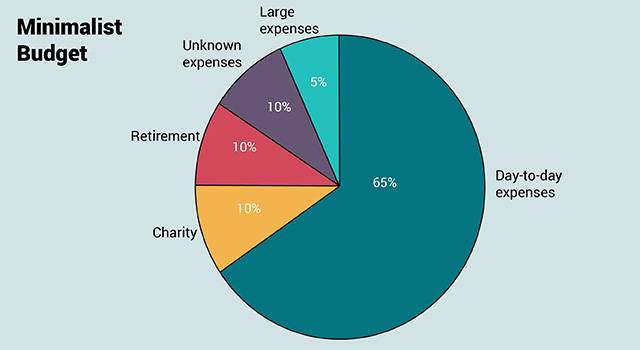
Minimalist Lifestyle
How to Declutter Your Home and Life to Reduce Stress and Save Money
Decluttering your home and life can be a great way to reduce stress and save money. It can be difficult to know where to start, but with a few simple steps, you can begin to make a difference.
First, take a look around your home and identify areas that need to be decluttered. This could include closets, drawers, shelves, and other storage areas. Make a list of items that you no longer need or use, and set aside a designated area for them. This could be a box, bin, or bag.
Next, go through each item on your list and decide whether to keep it or donate it. If you decide to keep it, make sure it has a designated place in your home. If you decide to donate it, make sure to do so in a timely manner.
Once you have decluttered your home, it is time to move on to your life. Take a look at your daily routine and identify areas that could be simplified. This could include streamlining your morning routine, reducing the number of tasks you do each day, or cutting back on commitments.
Finally, take a look at your finances. Identify areas where you can save money, such as cutting back on unnecessary expenses or switching to a cheaper service provider.
By following these steps, you can declutter your home and life to reduce stress and save money. It may take some time and effort, but the results will be worth it.

The Benefits of Minimalism: How to Live with Less and Enjoy Life More
Minimalism is a lifestyle choice that has become increasingly popular in recent years. It involves living with less and focusing on the things that truly matter in life. By embracing minimalism, you can enjoy a simpler, more meaningful life. Here are some of the benefits of minimalism and how to live with less and enjoy life more.
One of the main benefits of minimalism is that it can help you save money. By reducing the amount of possessions you own, you can save money on things like rent, storage, and insurance. Additionally, you can save money by avoiding impulse purchases and only buying items that you truly need.
Minimalism can also help you reduce stress and anxiety. By decluttering your home and life, you can create a more peaceful and organized environment. This can help you feel more relaxed and in control of your life. Additionally, by focusing on the things that truly matter, you can reduce the amount of time and energy you spend worrying about trivial matters.
Minimalism can also help you become more productive. By reducing distractions and focusing on the essentials, you can become more efficient and productive. Additionally, by eliminating clutter, you can create a more organized workspace that can help you stay focused and productive.
Finally, minimalism can help you create more meaningful relationships. By focusing on the things that truly matter, you can create more meaningful connections with the people in your life. Additionally, by reducing the amount of possessions you own, you can free up more time to spend with your loved ones.
If you’re interested in living a more minimalist lifestyle, there are a few steps you can take to get started. First, take an inventory of your possessions and decide which items you truly need and which items you can live without. Then, start decluttering your home and life by getting rid of items that don’t bring you joy or serve a purpose. Finally, focus on the things that truly matter in life, such as relationships, experiences, and personal growth.
By embracing minimalism, you can enjoy a simpler, more meaningful life. By reducing the amount of possessions you own, you can save money, reduce stress and anxiety, become more productive, and create more meaningful relationships. If you’re interested in living a more minimalist lifestyle, start by taking an inventory of your possessions and decluttering your home and life. Then, focus on the things that truly matter in life and enjoy the benefits of minimalism.
How to Create a Minimalist Budget and Stick to It
Creating a minimalist budget and sticking to it can be a great way to save money and reduce stress. A minimalist budget is one that focuses on the essentials and eliminates unnecessary spending. Here are some tips for creating and sticking to a minimalist budget.
1. Identify Your Needs: Before creating a budget, it is important to identify your needs. Make a list of all the essential items you need to purchase, such as food, housing, transportation, and utilities. This will help you determine what is necessary and what can be eliminated.
2. Set a Budget: Once you have identified your needs, set a budget for each item. Make sure to include a cushion for unexpected expenses.
3. Track Your Spending: Tracking your spending is essential for sticking to a budget. Use a budgeting app or spreadsheet to keep track of your expenses. This will help you stay on track and identify areas where you can cut back.
4. Cut Back on Unnecessary Spending: Once you have identified your needs and set a budget, it is time to cut back on unnecessary spending. Look for ways to save money, such as using coupons, shopping at thrift stores, and eating out less.
5. Automate Your Savings: Automating your savings is a great way to ensure that you are saving money each month. Set up automatic transfers from your checking account to your savings account each month. This will help you stay on track and reach your financial goals.
Creating and sticking to a minimalist budget can be a great way to save money and reduce stress. By following these tips, you can create a budget that works for you and help you reach your financial goals.
Simple Strategies for Eating Healthy on a Minimalist Budget
Eating healthy on a minimalist budget can be a challenge, but it is possible. Here are some simple strategies to help you make the most of your budget while still eating nutritious meals.
1. Plan Ahead: Planning your meals ahead of time can help you save money and time. Make a list of meals you want to make for the week and shop for the ingredients you need. This will help you avoid impulse purchases and stick to your budget.
2. Buy in Bulk: Buying in bulk can help you save money in the long run. Look for items like grains, beans, and nuts that can be stored for a long time and used in multiple recipes.
3. Buy Frozen Fruits and Vegetables: Frozen fruits and vegetables are often cheaper than fresh produce and can last longer. They are also just as nutritious as fresh produce.
4. Buy Local: Buying local produce can be cheaper than buying from the grocery store. Visit your local farmers market or join a CSA (Community Supported Agriculture) to get fresh, local produce at a discounted price.
5. Cook at Home: Eating out can be expensive, so try to cook at home as much as possible. This will help you save money and you can control the ingredients you use.
By following these simple strategies, you can eat healthy on a minimalist budget. With a little planning and creativity, you can create delicious and nutritious meals without breaking the bank.
The Benefits of Minimalism: How to Live with Less and Enjoy Life More
Minimalism is a lifestyle choice that has become increasingly popular in recent years. It involves living with less and focusing on the things that truly matter in life. By embracing minimalism, people can enjoy a simpler, more meaningful life.
The benefits of minimalism are numerous. First, it can help reduce stress and anxiety. By living with fewer possessions, people can free themselves from the burden of having to manage and maintain a large number of items. This can help reduce the amount of time and energy spent on mundane tasks, allowing more time for relaxation and enjoyment.
Second, minimalism can help people save money. By living with fewer possessions, people can avoid the temptation to buy unnecessary items. This can help them save money for more important things, such as travel or investments.
Third, minimalism can help people focus on what truly matters in life. By living with fewer possessions, people can focus on the things that truly bring them joy and satisfaction. This can help them prioritize their time and energy, allowing them to focus on the things that truly matter.
Finally, minimalism can help people live more sustainably. By living with fewer possessions, people can reduce their environmental impact. This can help them reduce their carbon footprint and contribute to a healthier planet.
Overall, minimalism can be a great way to live a simpler, more meaningful life. By embracing minimalism, people can reduce stress and anxiety, save money, focus on what truly matters, and live more sustainably. By living with less and enjoying life more, people can find true happiness and fulfillment.







